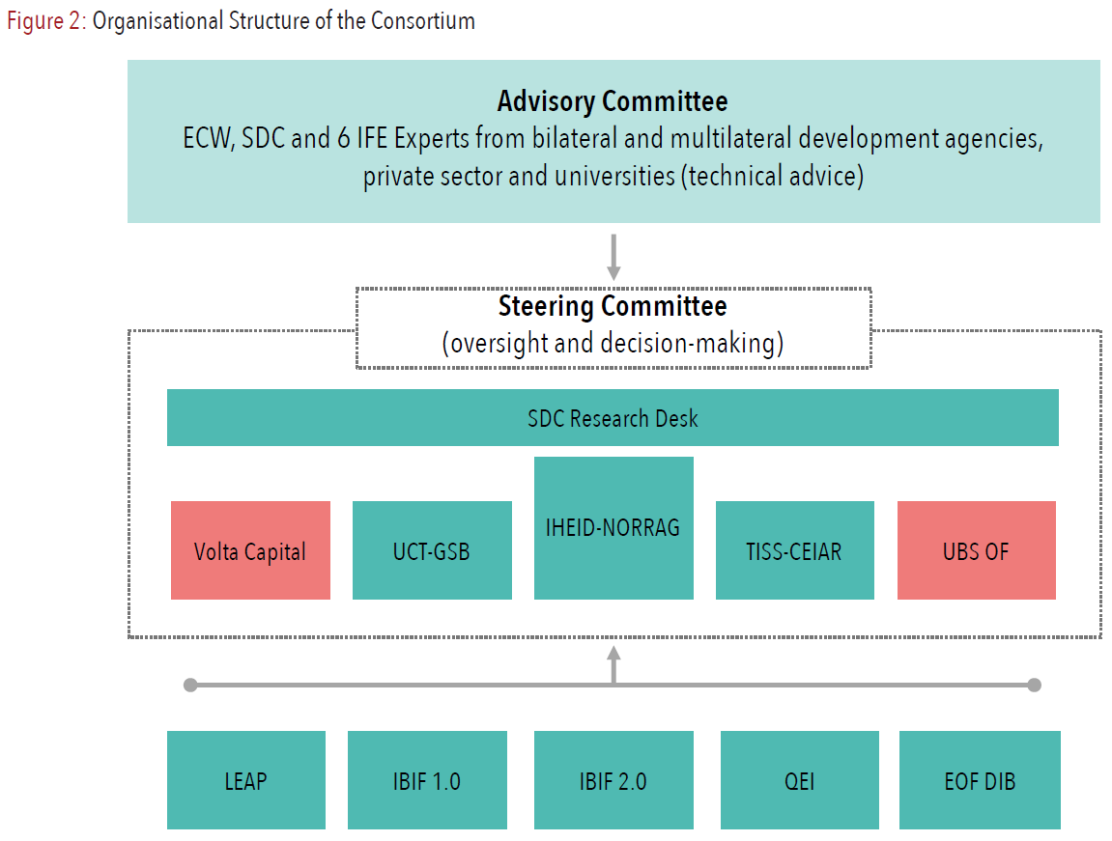All five partners and SDC will work in a highly collaborative manner sharing knowledge and experience across IF initiatives and evaluations to ensure that the learning opportunity of this evaluation project is not only shared externally with the education and development community but also internally to maximise the collective knowledge of the consortium (Figure 2). Project governance will be supported by a Steering Committee composed of the SDC Research Desk and the five consortium partners. Additionally, the project will seek technical advice and feedback from an International Advisory Committee composed of Education Cannot Wait, SDC, and international renowned IFE experts (like the Brookings Institution, the World Bank, Innovative Finance Foundation, etc.).

IHEID-NORRAG will serve as the lead partner for the IFE-2-LNOB project. It will play the central role in establishing the impact evaluation framework, coordinating the research, developing the evaluation synthesis and the financial management for the applied research component of IFE-2-LNOB. It will also take the lead in disseminating the research findings in a way that is effective and reaches a wide audience of stakeholders. The collaboration between research partners, IHEID-NORRAG, UCT-GSB and TISS-CEIAR, will foster knowledge exchange and capacity building of experts in both the Global North and the Global South. It also fosters south-south collaboration by engaging TISS-CEIAR, which has expertise in research and innovative financing in education in the South Asia region, to collaborate with colleagues in the African continent. All research partners, including IHEID-NORRAG, will engage funded PhD students as research associates in IFE-2-LNOB, which will build analytical skills of the new generation of development researchers on the emerging topic of innovative financing for education and development.
The two implementation partners, UBS OF and Volta Capital, will take the lead in implementing the IF initiatives to reach the target beneficiaries. The implementation partners will also contribute to data collection from the IF initiatives in the form of existing programme monitoring and evaluation and some of the additional data collection required for the IFE-2-LNOB evaluation. They will actively engage and incorporate learnings from formative evaluation findings along with participating in global dialogue and knowledge dissemination activities.
This project is co-funded by the TRANSFORM research initiative of the Swiss Agency for Development and Cooperation.

